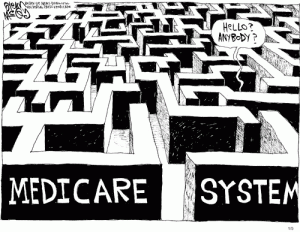By Steve Moran
I often get asked for advice, by friends, by readers, and by strangers. Often it is mundane things like:
- Who would be a good speaker for …?
- How can I be more effective on LinkedIn?
- How do I go about finding the right senior living community?
- Do you know, and would you make an introduction to …? (For clarification, I am very protective of my relationships, and more often, even when I know someone I take a pass.)
- Do you have ideas about how to better market my company and my community?
The more interesting and more difficult questions circle around a career that has considerable overlap and impact on that person’s personal life. These are profound questions, because ultimately they are life-altering decisions that can impact the quality of one’s retirement.
Consequences
If the requests come from people in their 20s to mid-50s, the risks of giving wrong advice are much less significant than when people are in their mid-50s and older. But what is interesting is that older people, perhaps because their options appear more limited, seem to ask more frequently. Or perhaps the explanation is as simple as having similar ages.
Approach
The bullet point questions are pretty easy. I can help or not. If I can help, the questions are specific. The more profound questions rarely result in answers but rather a series of questions to explore passions and abilities. That sets the stage to brainstorm ideas.
Frustration
Way too often, after going through this brainstorming process, we will come up with some really great ideas — even mind-blowing, life-altering ideas.
Then something happens … the reasons THEY can’t do these great things. I get it, these things — every single one of them — come with risks, and mostly those risks are significant. But in many cases, their status quo is every bit as risky. It feels less risky than it is because they have learned to live with that risk.
My response is always the same: GO DO IT ANYWAY!
Power of Regret
Dan Pink in his new book, The Power of Regret, describes a vast body of research, including his own, that demonstrates people are much more likely to regret doing nothing rather than doing the wrong thing.
P.S. If you are one of those who have been asking me for wisdom over the last couple of months … I am talking about you!
Next Step
Often I get asked for advice, mostly about career, but in many of our lives, career and personal have considerable overlap. Way too often I will make a suggestion, or better, the person will come up with an idea for the next steps. Sometimes conceptions or directional, and sometimes very specific. So far so good.
They will start listing off all the reasons they can’t do it, it won’t work.
- No support
- No time
- Too tired
- No money
My response: Do it anyway.








